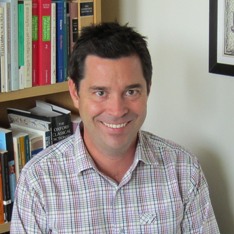Philosophy Professor Dr. Cashen examines suffering and the good life
 Philosophy, the love of knowledge – many students wonder what Philosophy is and how it is applicable to everyday life. Philosophy professor Dr. Matthew Cashen explores what at first may seem to be the most basic, though arguably one of the most important aspects of Philosophy and its applications: How does one live a good life?
Philosophy, the love of knowledge – many students wonder what Philosophy is and how it is applicable to everyday life. Philosophy professor Dr. Matthew Cashen explores what at first may seem to be the most basic, though arguably one of the most important aspects of Philosophy and its applications: How does one live a good life?
Eudaimonia, an Ancient Greek word that can be translated as “Good spirits” or “wellness,” is essential to Aristotle and his concept of living a good life. Aristotle’s concept of what it means to live a good life can be summed up with the now common phrase “everything in moderation” and by extension, knowing how to respond to the different scenarios one encounters in everyday life. With happiness on the mind, one would be inclined to ask about the opposite – suffering.
During his recent sabbatical, Dr. Cashen examined Aristotle and Aristotle’s concern about living a good life and the role suffering plays in this pursuit. Dr. Cashen argues the amount of suffering is actually irrelevant to living a good life, so long as it does not affect the way one acts. Aristotle, Dr. Cashen argues, believes that suffering may lead one to act less good by virtue of their suffering and that in turn may compel one to live a less good life. However, it is not the suffering in and of itself that keeps one from living a good life, but rather the increased potential for one to act less good through their actions.
To back up his thesis, Dr. Cashen cites Aristotle’s Nicomachean Ethics and Rhetoric. He notes the role of emotion is not much mentioned in the Nicomachean Ethics and thus used the Rhetoric for much of the groundwork in the study. In the Nicomachean Ethics, Aristotle argues that to live a good life, one must know how to respond to the world appropriately, which means not responding in either an excessive, or deficient manner (over reacting, under reacting). For Aristotle, this is a skill that is taught, rather than an innate response. Aristotle held that to become a good person and by extension live a good life, education was imperative; thus one must be taught how to respond correctly. This in turn relates to suffering and how one ought to respond to suffering. Aristotle held that suffering was not in and of itself bad, but that one’s response to the suffering was key; if one knows how to respond appropriately, they would in turn know how to respond to suffering and not use that suffering as a mechanism to respond or act in a negative manner.
A remarkable part of studying Aristotle is what makes this great thinker who lived roughly 2,500 years ago – that he was concerned with many of the things that we are still concerned about today. In this specific example, happiness and suffering, and which role both play in our lives. Aristotle – and Aristotelian scholars – go against the grain in saying that money, love, family, property, ect. (aspects of life we usually assume implies a good life) are not what makes one live a good life. Instead, he argued that eudaimonia, wellness, is what is necessary to live a good life. The others cannot be what is necessary to live a good life because we want them for our wellness, thus they are only a means to the greater end.
Another relevant aspect to studying Aristotle is not what he was right about, but rather how wrong he was with certain ideas he had. Dr. Cashen notes that despite Aristotle’s intellectual magnitude – there are few subjects on which he did not write about – he held views that many in contemporary society would find abhorrent, such as his views on slavery being normal or that women were subhuman and not capable of intellect, for example. With this in mind, Dr. Cashen wonders what will future generations find terribly inexcusable about our contemporary society. He thus concludes, “Looking to the past helps us judge ourselves.”
Filed Under: Scholarly Activities












